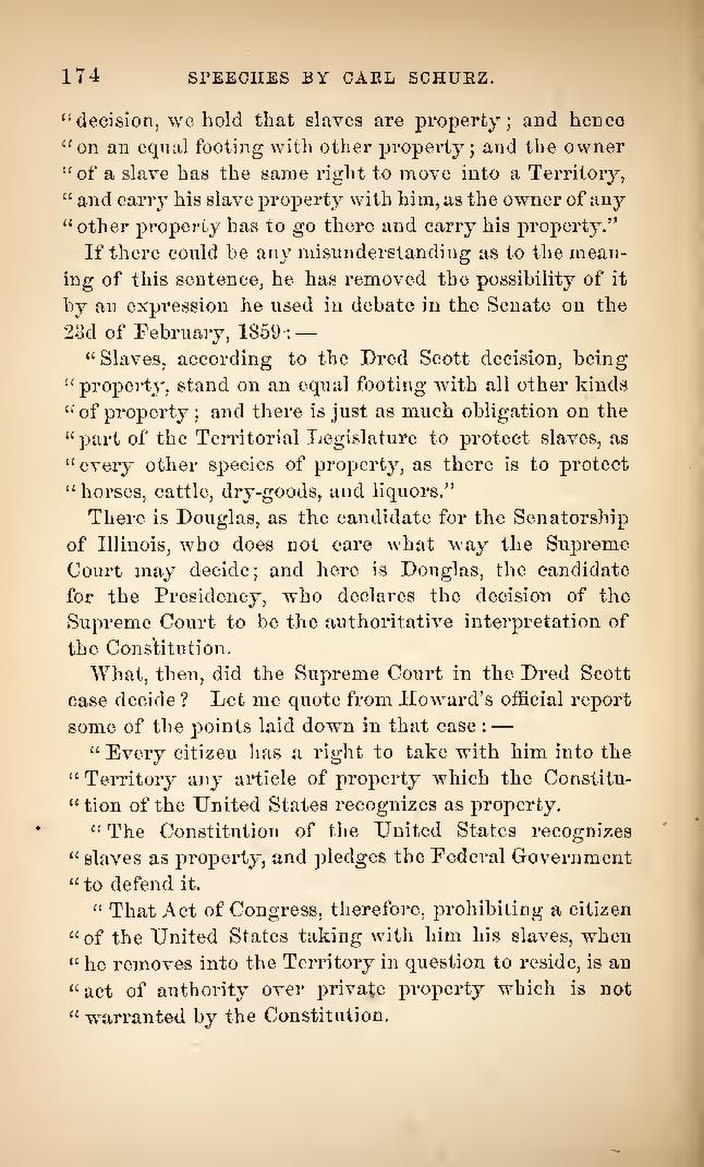decision, we hold that slaves are property; and hence on an equal footing with other property; and the owner of a slave has the same right to move into a Territory, and carry his slave property with him, as the owner of any other property has to go there and carry his property.”
If there could be any misunderstanding as to the meaning of this sentence, he has removed the possibility of it by an expression he used in debate in the Senate on the 23d of February, 1859:—
“Slaves, according to the Dred Scott decision, being property, stand on an equal footing with all other kinds of property; and there is just as much obligation on the part of the Territorial Legislature to protect slaves, as every other species of property, as there is to protect horses, cattle, dry-goods, and liquors.”
There is Douglas, as the candidate for the Senatorship of Illinois, who does not care what way the Supreme Court may decide; and here is Douglas, the candidate for the Presidency, who declares the decision of the Supreme Court to be the authoritative interpretation of the Constitution.
What, then, did the Supreme Court in the Dred Scott case decide? Let me quote from Howard's official report some of the points laid down in that case:—
“Every citizen has a right to take with him into the Territory any article of property which the Constitution of the United States recognizes as property.
“The Constitution of the United States recognizes slaves as property, and pledges the Federal Government to defend it.
“That Act of Congress, therefore, prohibiting a citizen of the United States taking with him his slaves, when he removes into the Territory in question to reside, is an act of authority over private property which is not warranted by the Constitution.
